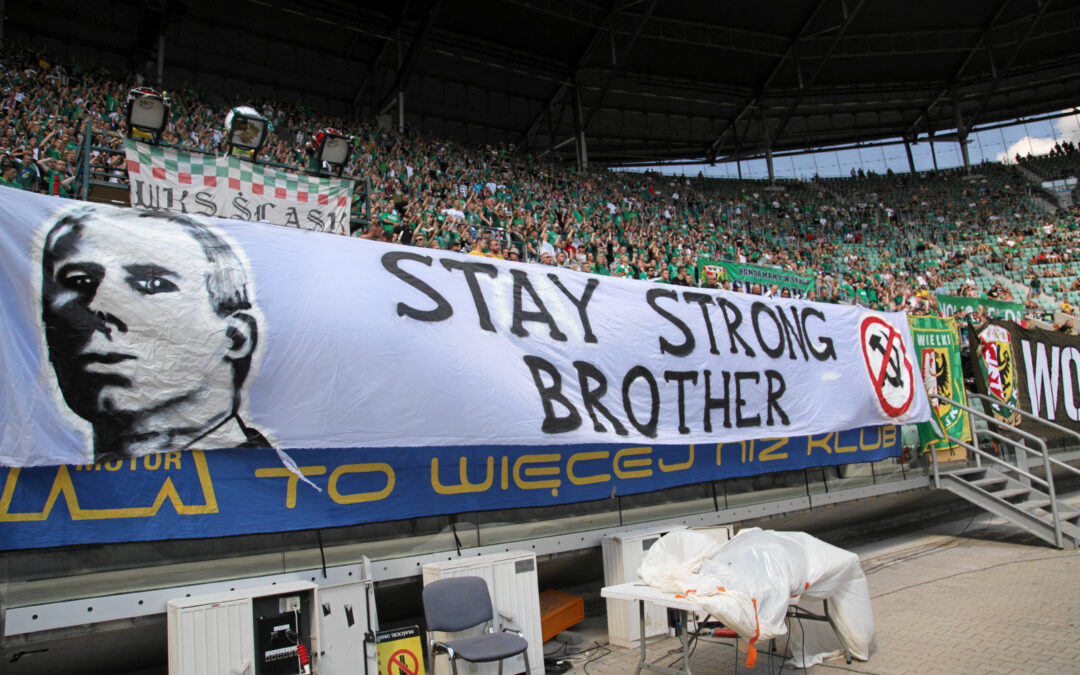A Polish white nationalist who assassinated a black anti-apartheid leader in the hope of provoking a race war has been freed on parole by South Africa’s constitutional court after serving almost 30 years in prison.
Janusz Waluś – who murdered Chris Hani, leader of the South African Communist Party, in 1993 amid negotiations to end apartheid – has become a hero to many radical nationalists in Poland, who have chanted his name during football matches and held up his image during marches.
He has in recent years repeatedly sought release from prison in South Africa, where he has been serving a life sentence. Those efforts have previously been rejected, most recently in December last year.
If white supremacist Waluś is released from prison in South Africa, where he murdered an anti-apartheid leader in the hope of sparking race war, he'll be welcomed by some in Poland, where he's idolised by the far right & even received support from some MPs https://t.co/oC0R9XsROk
— Notes from Poland 🇵🇱 (@notesfrompoland) November 11, 2018
Today, however, South Africa’s constitutional court set aside a decision by the justice and correctional services minister, Ronald Lamola, to refuse Waluś parole, calling it “irrational”. The court has given Lamola ten days to release Waluś, who is now aged 69.
Waluś had argued that keeping him “incarcerated forever is an unjust, inhumane and cruel punishment”, reports South African news outlet Business Day. He said that there had been “continuous shifting of the goalposts and new reasons for refusing parole by different ministers”.
As part of his case, Waluś argued that he had been “completely rehabilitated” in prison, including now accepting that apartheid was wrong. He added that he had tried many times to apologise to Hani’s widow and children. “I am genuinely sorry for what I have done,” he wrote.
Chief Justice Raymond Zondo stresses the principle of equality before the law, as he states that the bill of rights was not just written for those who fought apartheid – but those who actively supported it.
ConCourt orders Minister Ronald Lamola to place Janusz Walus on parole.— Karyn Maughan (@karynmaughan) November 21, 2022
However, Hani’s widow, Limpho, has consistently opposed Waluś’s bid for release. She called today’s ruling “diabolical”.
Polish journalist Cezary Łazarewicz – who interviewed Waluś in 2018 – has also raised doubts about the assassin’s self-proclaimed reformation.
“Waluś told me that he was very sorry for killing [Hani] but he never regretted [killing a] communist leader. He told me there was a war in South Africa and he felt like a soldier…He still believes in the system of racial segregation and that whites and blacks should live apart,” Łazarewicz told the BBC in 2020.
The journalist also noted how Waluś has become a hero to many Polish radical nationalists, who “admire him because he tried to stop communism in South Africa, [and say] that he is the great hope of the white race”.
In 2016, a group of nationalist MPs in Poland launched a campaign for Waluś to be released. The cause won support from a senator of the ruling Law and Justice (PiS) party, Jan Żaryn, who said that “Waluś’s harassment is the result of personal revenge by part of South Africa’s governing elite”.
Waluś moved to South Africa from communist-ruled Poland in 1981 and gradually become involved in political organisations that supported the apartheid regime, including the neo-Nazi Afrikaner Resistance Movement.
On 10 April 1993, he drove to the house in Johannesburg belonging to Hani, who had fought as part of the resistance to apartheid before supporting the end of armed struggle and a negotiated dismantlement of the system of racial segregation.
As Hani returned home that day, Waluś shot him four times and fled. He was later arrested and convicted, along with the mastermind behind the assassination, politician Clive Derby-Lewis, who was released on medical parole in 2015 and died from lung cancer the following year.
In 1993, Polish white supremacist Janusz Waluś killed South African anti-apartheid leader Chris Hani in the hope of sparking a race war.
The @BBC looks at how Waluś, still imprisoned in South Africa, has become a hero for many on the Polish far right https://t.co/KHJBd5Fw0J
— Notes from Poland 🇵🇱 (@notesfrompoland) September 20, 2020
Main image credit: Mieczyslaw Michalak / Agencja Wyborcza.pl

Daniel Tilles is editor-in-chief of Notes from Poland. He has written on Polish affairs for a wide range of publications, including Foreign Policy, POLITICO Europe, EUobserver and Dziennik Gazeta Prawna.




















